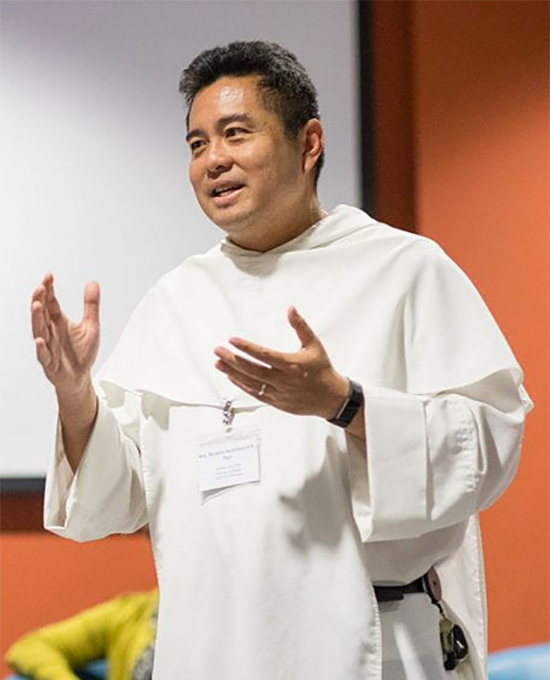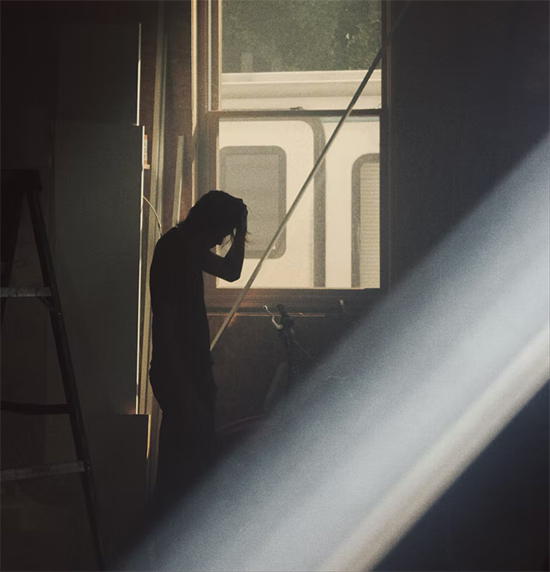On love, regrets and dying
February is love month, but have you also observed that Ash Wednesday creeps up fast after Valentine’s? Love and death — they evoke completely different emotions and memories. But wasn’t the death of Christ the ultimate sacrifice because of His great love for us?
This topic came about accidentally when I was blessed with an hour-long exclusive interview with Fr. Nic Austriaco, whose wisdom on corona and the vaccines that protect us we have published before. He spoke passionately about love and death and it would be a tragedy not to share his insights with you.
THE PHILIPPINE STAR: We have never seen as much death as we have these last two years. As a scientist, you find ways to extend health. How were you involved as a Catholic priest?
FR. NIC AUSTRIACO: For three straight summers, I helped hundreds, if not thousands, of people die in three hospitals in the upper east side of Manhattan. So I am profoundly shaped by my many months of helping those people die. When people ask me what kind of death should we aim for, I say we should aim for a holy death. What does that mean? I say a death that is peaceful, a death that is full of love, and a death that is completely saturated with hope.

We will all die and so what has to happen is to recognize those deaths, the signs of dying. It’s called actively dying. We can recognize, you know, within a week, within a few days, within a few hours. There are different signs of active dying. And so, as a Catholic priest, as well as a molecular biologist and a cancer biologist, they wanted to talk to me about their illness, but I think people who are dying, know they’re dying. And we need to prepare them and prepare us for their passing into eternity.
This is one shortcoming of healthcare in the United States. It tends to be very objective. The healthcare worker, the healthcare professional, tends to distance himself from death because if you are very secular, there is nothing after death. So what you see is primarily a failure on your part as a healthcare professional when someone is dying. And I tell people, tell doctors and nurses, your primary goal is not to cure, but to heal and you can heal a dying person, right? You have to accompany them.

Is there something common about your interactions with the dying?
So my response is that science and medicine can only go so far when people are dying. And I have helped so many people to die. They will ask me two questions, and it comes out in two different ways.
‘You encounter people with deep regrets for life, because they had so much (in possessions) but so little love.’
The first one is “was my life worth it? How am I to judge the quality of my life?” They look at their life as they prepare to pass to eternity to return to the Father’s house. And so, I refer them to St. John of the Cross, the great Carmelite saint. He said that at the twilight of our life, our life will be judged by how much we have loved.
I would sit there with a dying person — whether that person is 28 and dying from terminal glioblastoma multiforme or 85 years old — and ask: Did someone love more because of you?
You encounter people with deep regrets for life, because they had so much (in possessions) but so little love.

The second question that comes when people are dying is “where am I going?” And this is a profoundly religious question because I’m a Catholic, and because I am a Christian. I will speak about the Lord and his mother. So with regards to how we do dying here, it’s not just the person, you have to prepare the family for the passing, right? We have to teach people about the signs for the coming of death.
Also, I find that many family members remain un-reconciled with their dying loved one. So they want to keep their mama or papa alive because they feel guilty. Something has not been resolved.
As a priest, I spend many days with a dying patient and his family. I would then ask family members to speak about the things that need to be spoken and there are several things you must say. You have to say: I am sorry. I forgive you. Thank you. I love you. See you soon.
And I’ve helped families (pauses for a long time, becoming emotional) say those things.
As a scientist, are you looking for ways to make people die peacefully with as little pain as possible when it is their time to go?
One of the things I’ve discovered as a priest is you cannot control your way of dying. We can only do so much. Dying is a deeply individual process. We are all watching you die. What we can do is we can make you comfortable; we can take you home.
So many of us die in the hospital in a way that is not always conducive to the deep dignity we have as human beings who are preparing to move into eternity. So if you ask, what do I do with terms of technology? It’s not just technology; it’s about changing a mindset. So that at the end of life, we will say it is reasonable to stop medical care. It is reasonable to move to palliative care. It is reasonable to move this person home. Now, can stem cells, do this? Again, stem cells are like vitamins. It really depends on the person, the condition, you know?
I think medicine’s goal is to try to alleviate as much suffering as possible. Ideally, of course, we die in our sleep, we die quietly and peacefully. But there are no guarantees, right? And science, and technology, cannot really promise you this. Like I’ve been in meetings, people tell me they don’t have faith. I met this one billionaire who told me that his dream is to upload his consciousness to a computer so he will live forever in a machine. He asked, don’t you want that? And I said, look, I love to hug people. I love to eat Carbonara. I love gelato. The bodily experience is part of what it means to live as a human being, which is why I know I will rise in the dead. I know I will have my body back. So I would rather have my body back than to live in a machine. Would you want someone to love you or a machine to convince you that you are being loved?
We tend to forget the deeply human dimensions of life. And if we are thinking it’s not an immortal life, it’s eternal life I want.


